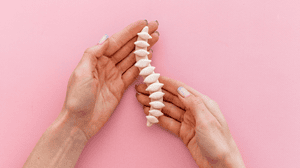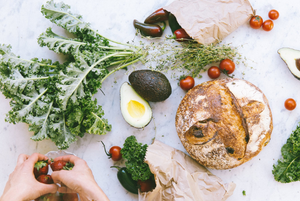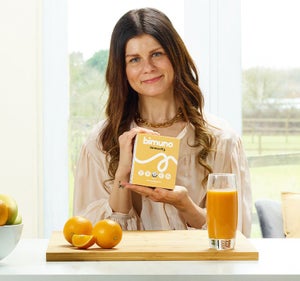
There are quite a number of impressive stats related to our gut such as we house some trillions, yes TRILLIONS, of microbes in our microbiome as well as the fact that we produce large amounts of neurotransmitters like serotonin, that have a role in our mood (see my previous blog post here https://www.bimuno.com/news/wellbeing/gut-health-and-mood/ for more on that). However, many of you might be really surprised to hear that the gut is our largest immune organ, accounting for around 70-80% of our immune cellular hard wiring in the body. Whilst we have other physical and mucosal barriers working to protect us including the skin and saliva most of our body’s natural Armour is located within the gut!
Here’s how it works…
GUT GROUND CONTROLFirstly, let’s look at GALT, or gut-associated lymphoid tissue, which is scattered throughout our gut and is an essential part of our gut’s immune system. GALT relies on intricate conversations between our gut microbiome and immune cells to distinguish friend from foe and act appropriately.
It is our gut microbiome that has a leading role including producing substances that it uses to signal directly to immune cells as well as providing a ‘boot camp’ to educate our immune cells to differentiate between beneficial and potentially pathogenic microbes. The role of the gut microbiome is therefore of paramount importance for healthy immune system regulation and why we need to take extra care to help nourish and support it.
LINE OF DEFENCEThe other crucial layer of the gut-immune link lies in the intestinal epithelial barrier which is just one cell thick. This barrier is essentially what separates our external world from our internal one and it also has a rather paradoxical role in that on one hand it needs to be permeable enough to extract the nutrients from our food but on the other it also needs to watch out for potentially harmful molecules. This is why we need to aim for a gut barrier that is both flexible and simultaneously vigilant.
SUPPORTING OUR INTERNAL ARMYSupporting a healthy gut-immune response is a multi-factorial process. Here’s some of the ways we can help this…
- AIM FOR 30-PER-WEEK in terms of our plant food intake as this naturally increases our overall plant diversity which in turn supports a more diverse gut microbiome and immune system. This can be from vegetables, fruit, whole grains and nuts & seeds as well as spices and herbs. With this in mind consider making up nut & seed mixes that you can sprinkle over soups, salads, cooked vegetables, overnight oats and more. Vegetable boxes are another really easy way to get some natural rotation. Or try making my Plum & Hazelnut bars that includes 10 different types. Click here for the recipe https://evekalinik.com/plum-hazelnut-bars/
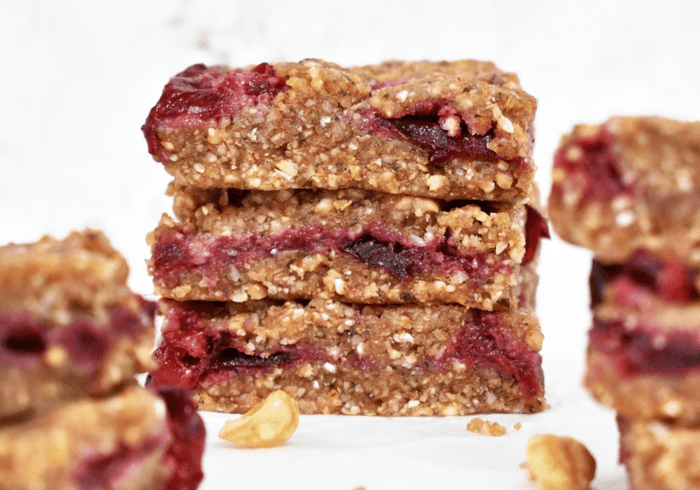
- INCLUDE GUT NOURISHING FOODS - such as organic bone broth, fermented foods, all types of mushrooms especially the funkier ones like shiitake as well as pumpkin and sunflower seeds, Brazil nuts, salmon, mackerel, prawns, butternut squash, sweet potatoes, spinach, apples and spices such as turmeric that contain vitamins, minerals, polyphenols, amino acids and types of fibre that all help to support the health of the gut and the immune system. Try making up a stewed apple compote with cinnamon that you can serve alongside breakfast or as a tasty snack. Broths are also great in the winter months to give that instant feel good factor and here’s my Shiitake, leek and seaweed one if you want some inspiration https://evekalinik.com/shiitake-leek-and-seaweed-broth/
- INCLUDE KEY CO-FACTOR NUTRIENTS such as vitamin C and zinc which are really important for the health of the immune system. Vitamin C is found in strawberries, kiwi, avocado, broccoli, rocket, all types of peppers, spinach and citrus fruit. The least cooked the better when it comes to vitamin C as it is impacted by heat. Zinc is abundant in shellfish, pumpkin seeds, hemp seeds, cashew nuts and traditional hard cheese which also includes a boost of beneficial bacteria for the gut too! Luckily Bimuno Immunity also contains both vitamin C and zinc to help meet your daily quota. And if you want a recipe that features a combination of some of the above check out my Panko crab cakes here https://evekalinik.com/panko-salmon-cakes-with-avocado-baby-spinach-and-miso-sesame-dressing/
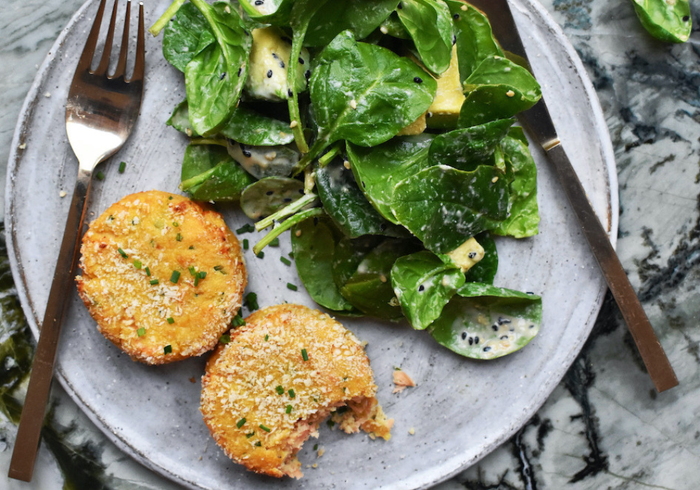
- LET THE SUNSHINE IN as this is a key component of how our body makes vitamin D. Ideally aiming for 20 minutes of unexposed skin per day. This can be trickier in the winter months as the sunshine is not as strong so if you are living in the UK you may consider taking supplements. Furthermore, the benefits of being outside and in nature help us to manage the effects of stress which leads nicely onto the final point…
- PRIORITISE REST as too much stress and not enough sleep can impinge on the health of our immune system. Allowing sufficient time before we go to bed without the devices in sight can help to cultivate a more restful nights sleep. Ideally aiming for an hour or so of winding down before hitting the pillow would be ideal. And alongside this try to include some kind of daily meditative practise such as breathing exercises, gentle yoga or straight up meditation has so many associated benefits including supporting the gut and the gut-immune link.
REFERENCES
Mörbe UM et al (2021) ‘Human gut-associated lymphoid tissues (GALT); diversity, structure, and function’ Mucosal Immunol. 2021 Jul;14(4):793-802. doi: 10.1038/s41385-021-00389-4. Epub 2021 Mar 22. (Online). Available at https://pubmed.ncbi.nlm.nih.gov/33753873/
Ahluwalia B, Magnusson MK, Öhman L (2017) ‘Mucosal immune system of the gastrointestinal tract: maintaining balance between the good and the bad’ Scand J Gastroenterol. 2017 Nov;52(11):1185-1193. doi: 10.1080/00365521.2017.1349173. Epub 2017 Jul 12. (Online). Available at https://pubmed.ncbi.nlm.nih.gov/28697651/
Daisuke T, Kimura S, Hase K (2021) ‘Intestinal immunity: to be, or not to be, induced? That is the question’ Int Immunol. 2021 Nov 25;33(12):755-759. doi: 10.1093/intimm/dxab051. (Online). Available at https://pubmed.ncbi.nlm.nih.gov/34375433/
Holscher H. (2017) ‘Dietary fiber and prebiotics and the gastrointestinal microbiota’ Gut Microbes. 2017 Mar 4;8(2):172-184. doi: 10.1080/19490976.2017.1290756. Epub 2017 Feb 6. (Online). Available at https://pubmed.ncbi.nlm.nih.gov/28165863/
Shahbazi R et al (2021) ‘Anti-Inflammatory and Immunomodulatory Properties of Fermented Plant Foods’ Nutrients. 2021 Apr 30;13(5):1516. doi: 10.3390/nu13051516. (Online). Available at https://pubmed.ncbi.nlm.nih.gov/33946303/
Akramiene D, Kondrotas A, Didziapetriene J, Kevelaitis E (2007) ‘Effects of beta-glucans on the immune system’ Medicina (Kaunas). 2007;43(8):597-606. (Online). Available at https://pubmed.ncbi.nlm.nih.gov/17895634/
Fu Y et al (2021) ‘Associations among Dietary Omega-3 Polyunsaturated Fatty Acids, the Gut Microbiota, and Intestinal Immunity’ Mediators Inflamm. 2021 Jan 2;2021:8879227. doi: 10.1155/2021/8879227. eCollection 2021. (Online). Available at https://pubmed.ncbi.nlm.nih.gov/33488295/
Poles J, Karhu E, McGill M, McDaniel HR & Lewis J (2021) ‘The effects of twenty-four nutrients and phytonutrients on immune system function and inflammation: A narrative review’ J Clin Transl Res. 2021 May 27;7(3):333-376. eCollection 2021 Jun 26. (Online). Available at https://pubmed.ncbi.nlm.nih.gov/34239993/
Carr AC & Maggini S (2017) ‘Vitamin C and Immune Function’ Nutrients. 2017 Nov 3;9(11):1211. doi: 10.3390/nu9111211. (Online). Available at https://pubmed.ncbi.nlm.nih.gov/29099763/
Hojyo S & Fukada T (2016) ‘Roles of Zinc Signaling in the Immune System’ J Immunol Res. 2016;2016:6762343. doi: 10.1155/2016/6762343. Epub 2016 Oct 31. (Online) Available at https://pubmed.ncbi.nlm.nih.gov/27872866/
Baeke F, Takiishi T, Korf H, Gysemans C, Mathieu C (2010) ‘Vitamin D: modulator of the immune system’ Curr Open Pharmacol. 2010 Aug;10(4):482-96. doi: 10.1016/j.coph.2010.04.001. Epub 2010 Apr 27. (Online). Available at https://pubmed.ncbi.nlm.nih.gov/20427238/
Househam, AM, Peterson CT, Mills PJ, Chopra D. (2017) ‘The Effects of Stress and Meditation on the Immune System, Human Microbiota, and Epigenetics’ Adv Mind Body Med. 2017;31(4):10-25. (Online). Available at https://pubmed.ncbi.nlm.nih.gov/29306937/
Rico-Rosillo MG & Vega-Robledo GB (2018) ‘Sleep and immune system’ Rev Alerg Mex. 2018 Apr-Jun;65(2):160-170. doi: 10.29262/ram.v65i2.359. (Online). Available at https://pubmed.ncbi.nlm.nih.gov/29983013/






